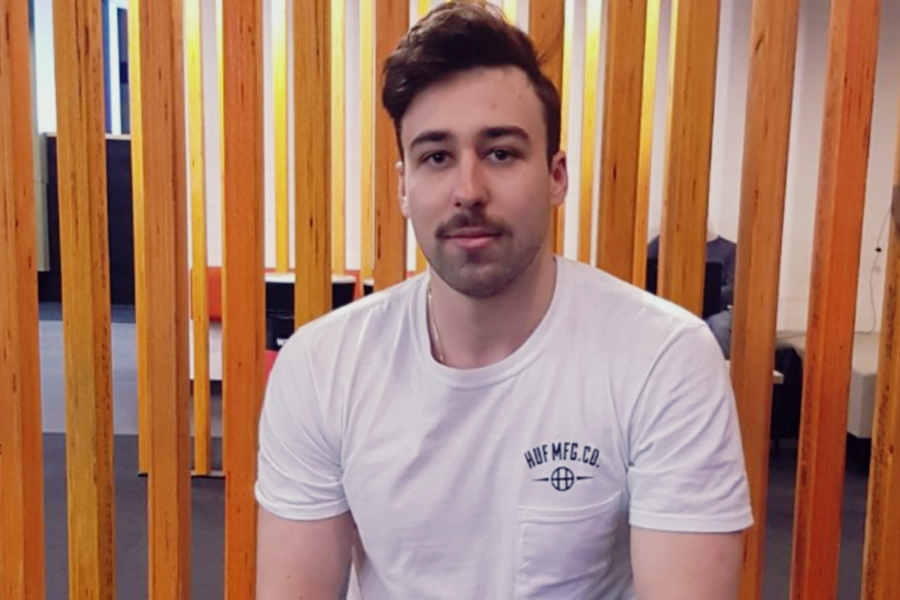Continuing its relentless online expansion over the last couple of years, the tutoring scene looks like it may end up becoming the new hot space for local disruption. While the market may not be as overburdened as, say, the online dating and connection space or the real estate sector, there’s still a healthy number of tutoring startups popping up with the aim of changing the game.
One of the newer kids on the block is Melbourne-based startup Tuty, which offers an online marketplace to connects tutors and students together, with a focus on the university market.
It’s a model worn by a lot of other platforms in the tutoring space, such as Scooter Tutor, which connects qualified tutors to students, and Skytutor, which looks to cut out the agency middleman when connecting tutors to clients.
To help separate itself from the competition, Tuty has introduced a loyalty program as well as online classes to its platform, allowing university students to receive their lessons via a virtual interface, as Tuty’s founder Greg Portnoy explained.
“It creates a complete virtual learning experience as tutors and students are able to collaborate in real time. It’s a great option for regional students or for students who want a quick set of notes. But, it’s mainly for busy students who want to learn from the comfort of their own homes,” said Portnoy.
Once an online tutoring service has been scheduled, both the tutor and student, regardless of where they are located, are able to connect to an interactive ‘classroom’. If a webcam is available, Tuty will place a video chat in the top right hand corner of the dashboard, allowing both users see each other.

Tuty Online Dashboard
Using a digital whiteboard, the tutor and student can begin interacting, using a panel of tools to attach items, write in maths equations, draw items, shapes, lines and erase content. The classroom also features a shared ‘assets’ panel which holds any images or documents relevant to the lesson, while a chat box sits underneath to facilitate written communication.
While the online classroom feature is a key focus for Tuty, Portnoy said clients a number of clients have been opting for the traditional tutoring experience – in-person lessons.
“There’s pretty much an even split between face-to-face and online lessons hosted on our platform so far, but I do think this will become the more popular option down the track, involving drawing on a whiteboard and discussing over video chat,” he said.
Stirring up the initial concept for Tuty, Portnoy said that as a university student studying law, he encountered first-hand the issues with finding a qualified university tutor online.
“I was studying for my Intellectual Property law exam and I was feeling absolutely hopeless. I tried to find a tutor on Google and found a few options; I enquired on both platforms and didn’t receive a response. It occurred to me that tutoring at a university level was nowhere near as mainstream or ‘cool’ as it is for high school, meaning there was significantly less competition and definitely room to create a new product for this market,” said Portnoy.
Currently, the majority of tutoring services for university students are served by a university itself. The University of Technology Sydney, for example, offers ‘U:PASS’, a free tutoring service where experienced students who have successfully completed a subject teach a small class of students who require help with the course.
There are also a small handful of face-to-face tutoring services tailored for university students, such as MyPrivateTutor, which connect qualified tutors to students, and StudentVIP, a marketplace for university tutors and helpful course material.
Wanting to make hiring a university level tutor, both offline and online, “as easy as ordering an Uber”, Portnoy looked to develop Tuty with $100,000 in early funding, which the founder said he came across by a stroke of luck.
“I met my mentor and venture capitalist whilst on holiday in Europe. I created a pitch deck and he got back to me in a few weeks saying that he would love to get on-board and funded the project with a $100,000 investment. He’s been nothing short of an amazing friend, coach, and someone I look up to,” said Portnoy.
Before being accepted onto the platform, tutors are pre-vetted by the startup through a full job application process, including a phone interview.
For students looking to find a tutor, Portnoy said they’re able to schedule the lessons in a few clicks, and schedule a mutually-convenient location to meet for in-person lessons on a Google Maps interface. Students are charged a transaction fee on each booking, while the tutors are not charged on their commission.
Gamifying the experience for users, students are able to rack up “Tuty Points” after each lesson, a form of loyalty points that can contribute to a discount of a future lesson.
“Tutors can also receive loyalty points for accepting a lesson and receiving a good rating from the student. This can be converted into cash by the tutor and withdrawn from their e-wallet,” added Portnoy.
Elsewhere in the tutoring space sit Connection Education and Scooter Tutor, two startups which are investing in online lessons to help evolve the market.
Connect Education has currently developed an online classroom where students can have their essays reviewed, while Scooter Tutor is investigating the establishment of an online video platform for students outside the startup’s offline range.

Tutoring marketplaces across Australia
Scooter Tutor | Connect Education | Skytutor
Discussing the recent boom of tutoring startups emerging of the last few years, Portnoy said he attributes the increase to simple market demand, where more and more parents and students, especially in tertiary education, are seeking tutoring services.
“I also believe more and more people are also taking learning into their own hands as companies like General Assembly continue to grow,” he said.
“In response to this market demand, more and more tutoring platforms are emerging. What I have noticed is that none of these tutoring platforms occupy a significant amount of anyone’s mindshare. What comes to mind when I say cola drink? Coca Cola. What comes to mind when I say cable TV? Foxtel. This is where I saw an opportunity and
endeavoured with my platform.”
As for Tuty’s place against the suite of competitors in the market, Portnoy said he believes Tuty is currently “miles ahead”, thanks to its focus on decentralising the experience.
“[There] are some great businesses in this space, but their attention is on schools and parents. I’d like to think that we aren’t just another tutoring agency, Tuty is evolving into a decentralized learning platform,” said Portnoy.
With students and tutors coming aboard the platform from across Australia, Tuty is looking to continue its customer growth, while expanding its internal team to help in the process.
Image: Greg Portnoy. Source: Supplied.




















Trending
Daily startup news and insights, delivered to your inbox.